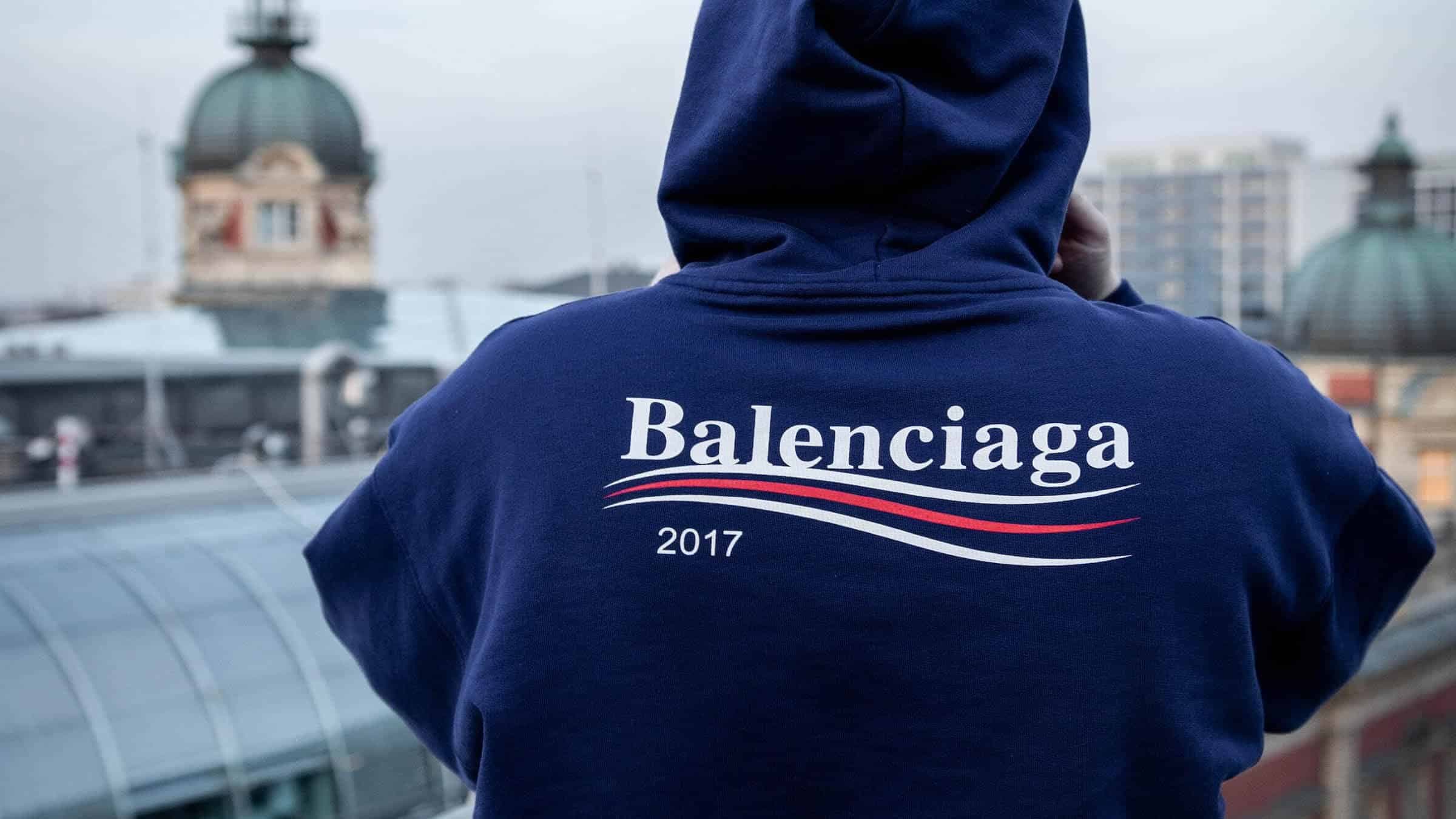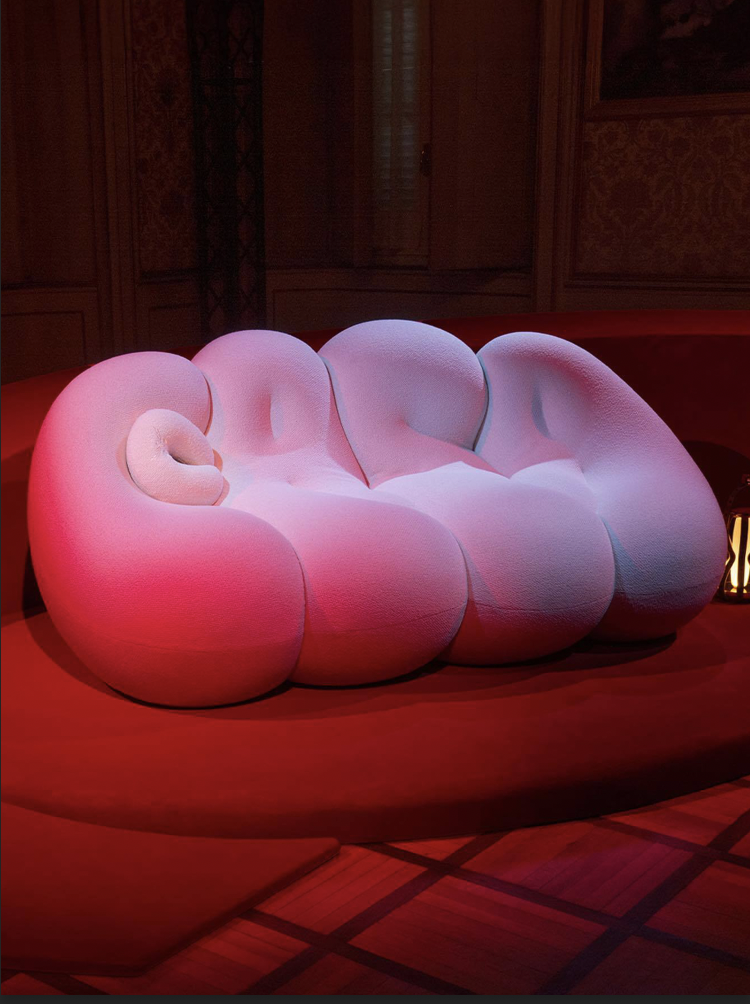When fashion fucks up, why are we the ones that feel guilty?

Time and time again fashion fucks up, and the industry seems to gloss over loose morals and swish past cancellation with surface level excuses. Brands miss the mark, they offend, face consequences, and somehow bounce back. They can afford to, can’t they? After a half-arsed “I’m sorry”, and a collection that evidences a shift to a new and inclusive brand; all the tears dry up.
This week, Balenciaga issued an apology on Instagram, “to address the controversies surrounding their latest ad campaign”. Controversies being, children holding plush toys dressed in BDSM wear in a photoshoot featuring SCOTUS child porn documents. “The responsibility for this one lies with Balenciaga alone”, they said. Woe is Balenciaga, will they ever recover?
If you haven’t already seen die-hard fans jumping to their defence, then you’re probably bombarded with the other side of the coin who are suddenly boycotting the brand. Each of these responses feels wrong. It may be easy to boycott a brand when income is dispensable, but for many, simply moving on and buying another brand is not realistic.
It’s those buying the brand at consumer level that end up facing the brunt of the failure. Many simply do not have the means to throw out their luxury labels, after potentially spending months saving to invest. Not just that, but with this generation’s ever-increasing awareness of climate change, we can’t simply sit and let each cancelled brand go straight to landfill. But when the brand is officially in the wrong, do we now align ourselves with those moral failures?
Exclusively speaking to HUNGER, a source that wishes to remain unnamed, states: “I have a vintage D&G top but I feel so bad wearing it, you know, they are so controversial. But it’s vintage, I sort of thought, does it really count? They aren’t getting the money. But then again I am wearing it, I’m not wearing them”. Struggling to afford living costs in London, let alone a new designer label, they add: “I also have a Galliano top I purchased in a charity shop, and after I found out he said anti-semitic remarks I felt so bad. There was a whole thing and apparently, Kate Moss defended him which just – I really don’t know. How do I decide whether or not to wear it?”
There is an internal back and forth between the superficiality of a product and what it now means to modern culture with a luxury label of negligence. By no means does wearing a cancelled brand piece mean that you directly did any wrongdoing. But what must be understood is that there is individual responsibility in understanding the history of an item of clothing and what that means to people, including the history of the brand.
And, of course, there is now a subculture of harsh judgement brought around by wearing these items, stemming from mega-toxic cancel culture. “I get that Balenciaga is cancelled but I have items from there that I wear every day” another unnamed source, who used to be a fan of the brand, continues to HUNGER. “That’s what you’re meant to do with a designer brand, you invest to wear again and again. I don’t agree with what they did and they are cancelled and everyone is going mad, but I can’t just rebuy everything.”
It can result in avoidance of the clothing, the conversation and therefore, second-hand guilt. It may feel wrong to sling your new Balenciaga jacket to the back of the wardrobe in fear of that conversation, but what can be done? Avoidance is not necessarily the answer, and education on the issues of a brand must be at the forefront of these cancellations. It is an individual responsibility to learn and understand the wrongdoing of a brand, and ultimately it is a personal decision whether to keep wearing them. But in most cases, the decision is already made for them, and they must sit and watch hundreds of pounds worth of designer goods wash away.
These million-dollar luxury corporations can afford to restart, or forget, and have done before. Alexander Wang made a runway comeback just one year after meeting with and apologizing to several people who accused him of sexual misconduct. John Galliano has “no memory” of his racist and anti-semitic abuse in 2011, and apologised for the behaviour. Dolce & Gabbana also released an apology video for the 2018 brand boycott from customers in China responding to a racist ad. The Italian pair bounced back again after both wearing blackface to a Halloween party, and publically denouncing gay parents being able to adopt. The list goes on.
But many still think celebrities can revive a cancelled brand. Kourtney Kardashian’s wedding to Travis Barker saw the whole ceremony donning D&G, despite the brand’s more than impressive CV for complete cancellation. Is it a matter of forgiving and moving on? Or is ignorance bliss?
This week, Kim Kardashian, the sister of D&G bride Kourtney, publicly denounced Balenciaga following their advert, which she said shewas “disgusted and outraged” by. The famous brand and celeb partnership has seen success for both parties and in October, the brand was one of the first to sever ties with ex-husband Kanye West following his antisemitic remarks. But don’t worry, Kardashian doesn’t randomly pick and choose her boycotts, as she is still willing to let them “take the necessary measures for this to never happen again”, and will “reevaluate” her relationship with the brand.
If celebrities, who do have the social and economic means to completely boycott a brand, can still wear the items, why can’t we? We get that teams of PRs delicately fix the situation to teeter on learning from mistakes and moving on, and concoct celebrities’ statements to not necessarily cancel them, but simply acknowledge their failures. The public, however, can’t release their statement defending as to why they still wear a cancelled brand. Would an Instagram story on the morning walk to work stating “I’m sorry but I haven’t done my laundry and I can’t afford another £500 Balenciaga top that costs the same as my rent” suffice?
Quite frankly, no. It all comes back to cancel culture, and we, as the public, do not have the means to reevaluate our wardrobes every other week, depending on which brand is fucking up and when. Do we forget? Do we throw out? We don’t actually know. But the plea to find some sort of solution may be clearer than we think: fashion needs to get a grip.

